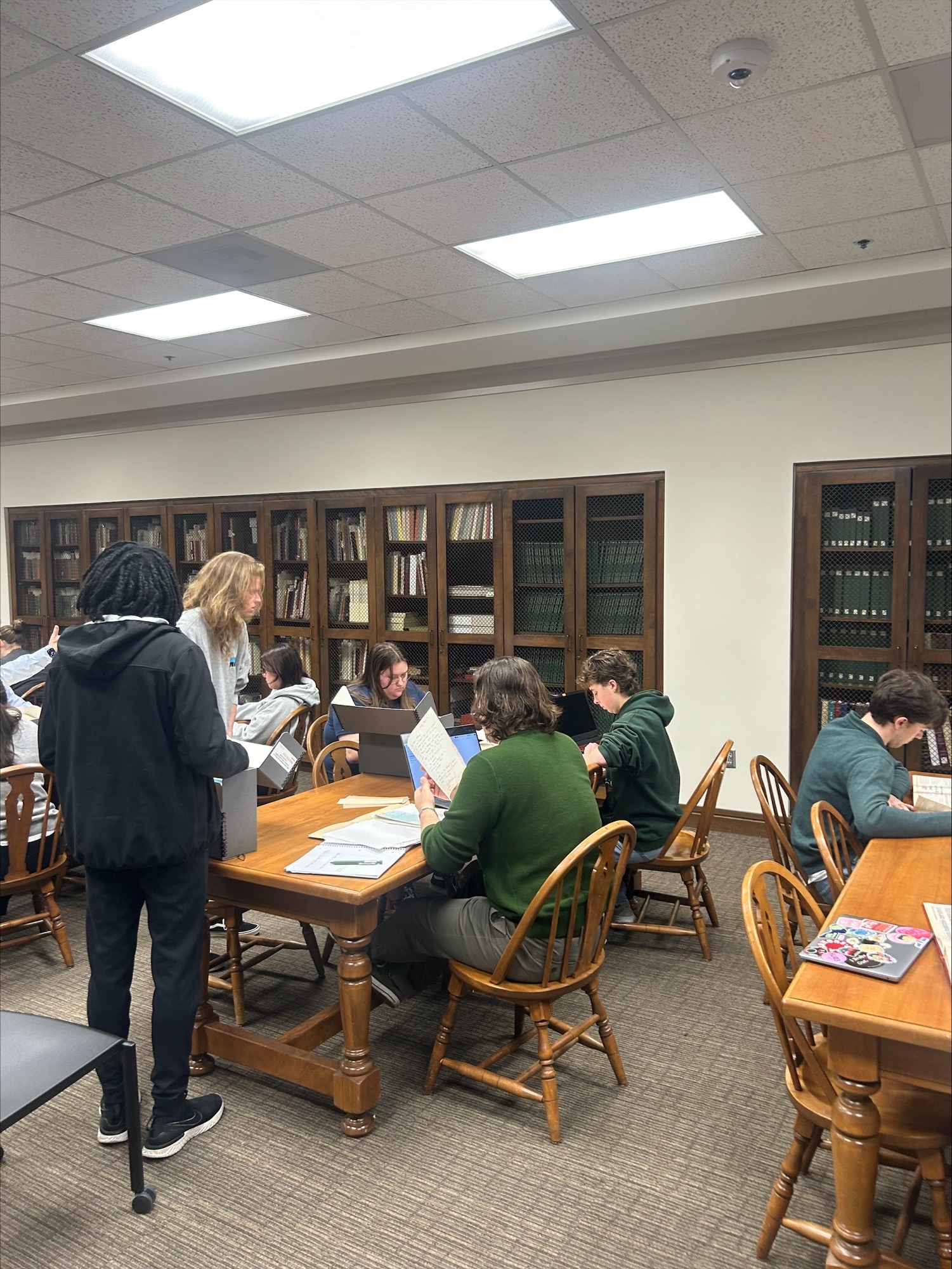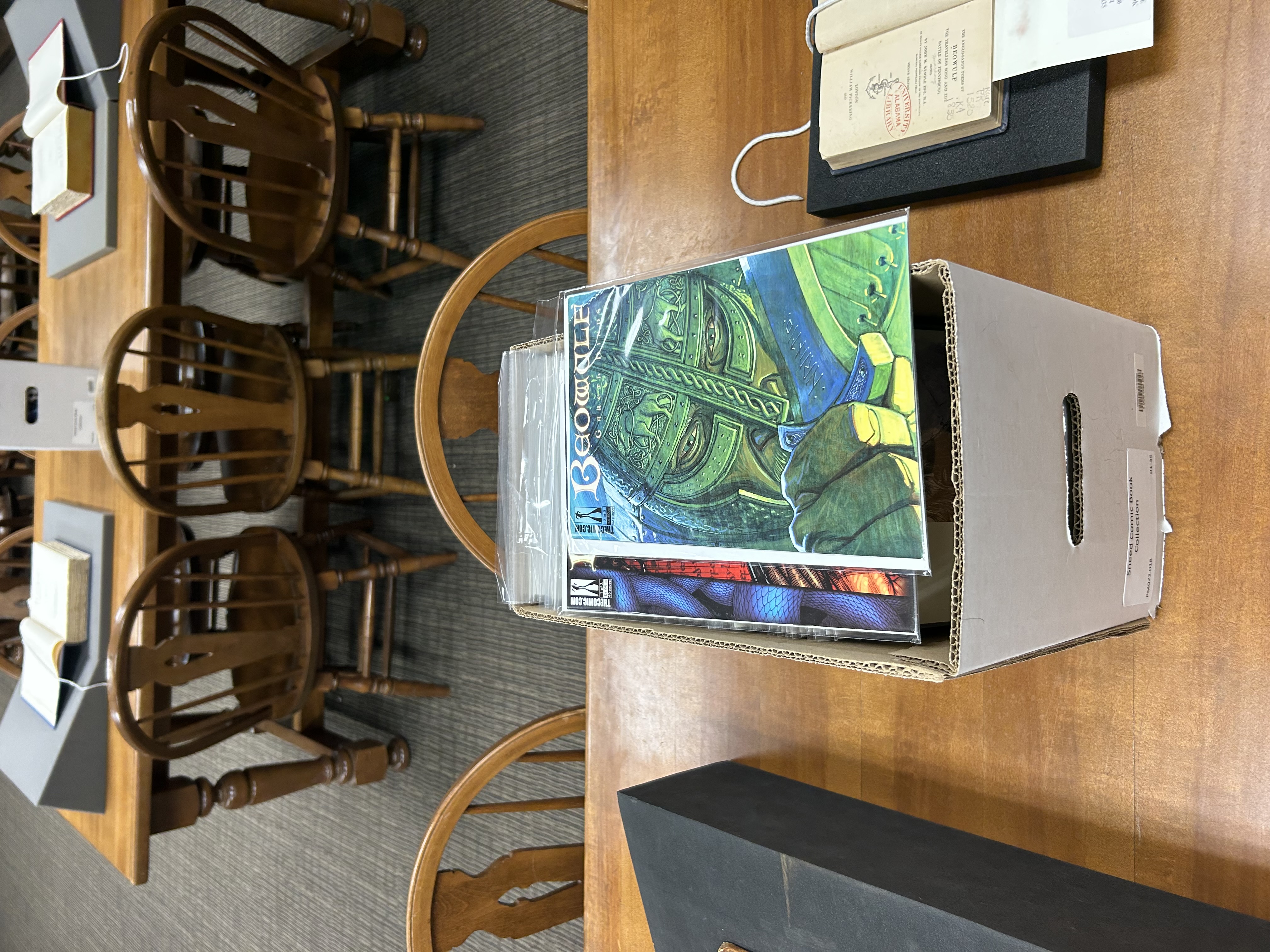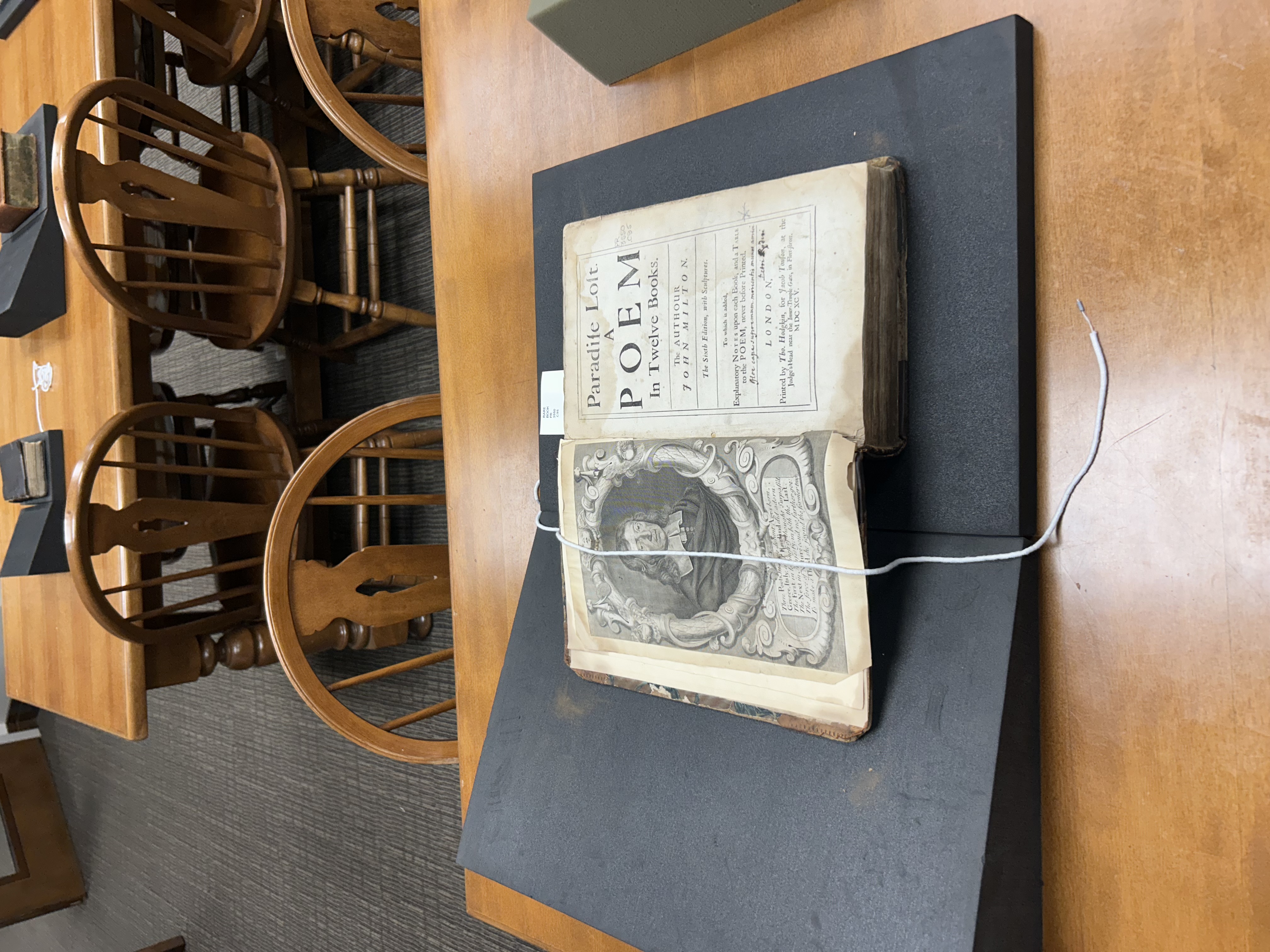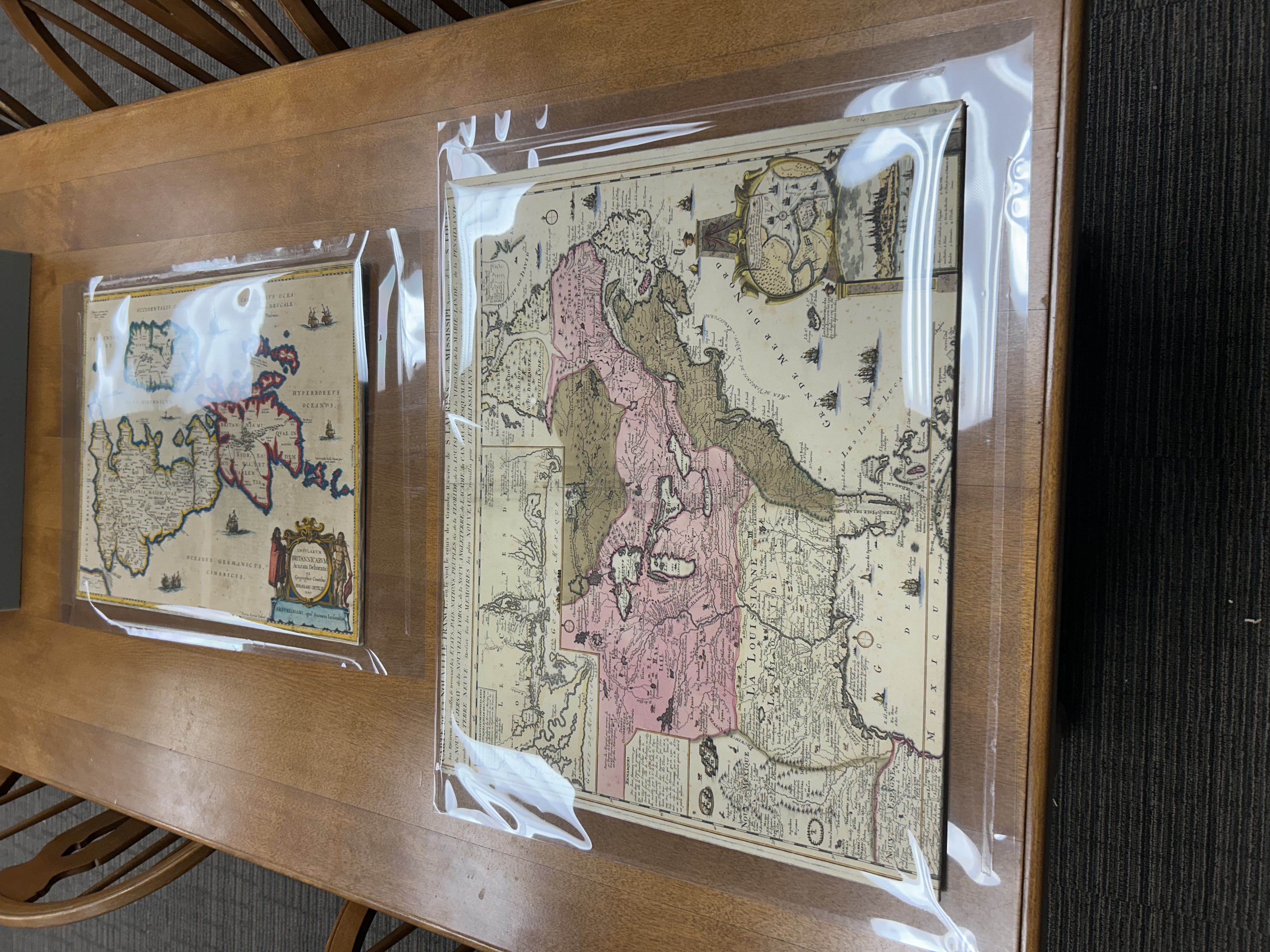Special Collections Instruction
Introduction
Why teach with special collections?
Working with archival materials and rare books has a lot of benefits for your students. Assignments or class activities involving primary sources
- allow students to engage in something new and be active learners;
- invite students to invest in their learning and take ownership of their ideas;
- ensure unique approaches and creative output; and
- provide you the opportunity to engage in collaborative pedagogy.
Reading Room Visits
We’re always happy to host class visits (or community tour groups) to the reading room. To set up a visit, email the Special Collections Reference and Instruction Librarian, Alex Boucher (taboucher@ua.edu) or contact us at archives@ua.edu.

Format
A class visit to the reading room can take a lot of shapes, but they tend to fall under three basic categories:
- Hands-on learning
- Resources for an assignment or project
- Primary source research
Of course, the visit may be a hybrid of these categories, and we always tailor the outcomes to your particular course. See our documented Special Collections Learning Outcomes for a more detailed discussion.

Instruction
Sessions can be driven by library staff or by the instructor. It may be that the librarian leads the session, driving the activities and discussion. It may be that you are essentially running a class session in the Special Collections Reading Room, using our materials for your own planned activities.
In either scenario, the librarian will curate archival materials and rare books (with your input, of course!) that fit the themes of your class. The librarian will also be on hand to acquaint everyone with the space and how to handle the materials, as well as answer any questions that come up.

Classroom Visits
While we generally don’t take any of our materials out of the building for instruction purposes, there are plenty of reasons to bring a librarian to your classroom anyway, even for just for a portion of the class session. We can do things like
- introduce ourselves and special collections;
- consult with students on their research projects;
- Discuss primary source research in general;
- guide students through analysis and evaluation exercises involving digitized materials from our Digital Collections.
Remote & Hybrid Instruction
We are happy to offer synchronous remote instruction for archival research skill or encounters with collections, featuring digitized materials or video of originals. If desired, you can have the students follow up with individual consultations with our staff and subsequent research appointments to see the materials in person.

Looking for digital archives to use in your classroom?
Check out the links below!
- Digital Collections — A LibGuide that explains how to use the Digital Collections interface and highlights (and links to!) collections by topic.
- Research Guides — A list of links you to topical guides, which have links to digital materials where they exist. Topics include African American history, Latin America and the Caribbean, rare maps, Alabama women, Native American resources, and military-related collections.
- Digital Exhibits — The new home of our digital exhibits. Recent offerings are on women’s suffrage in the South, Reconstruction in Alabama, and campus student unrest after the Kent State shootings in 1970. The sidebar leads to these awesome previous exhibits: Empowering Voices, on LGBTQ history in Alabama; and Persuasive Weapons, about WWI propaganda posters.
If you have a special content need, let us know! We can probably curate something for you.
Instruction Support
Special Collections can help you accomplish your teaching goals in other ways. For instance, we can
- consult on assignments involving primary sources, to ensure that they are doable with our collections and appropriate for novice researchers;
- embed in your course via regular class visits or a presence in Blackboard Learn, to be a more present point of contact for students; or
- collaborate on class research projects like public exhibits or websites, to give them a unique learning opportunity.
To start a conversation about how we can assist you, contact the Special Collections Reference and Instruction Librarian, Alex Boucher (taboucher@ua.edu).